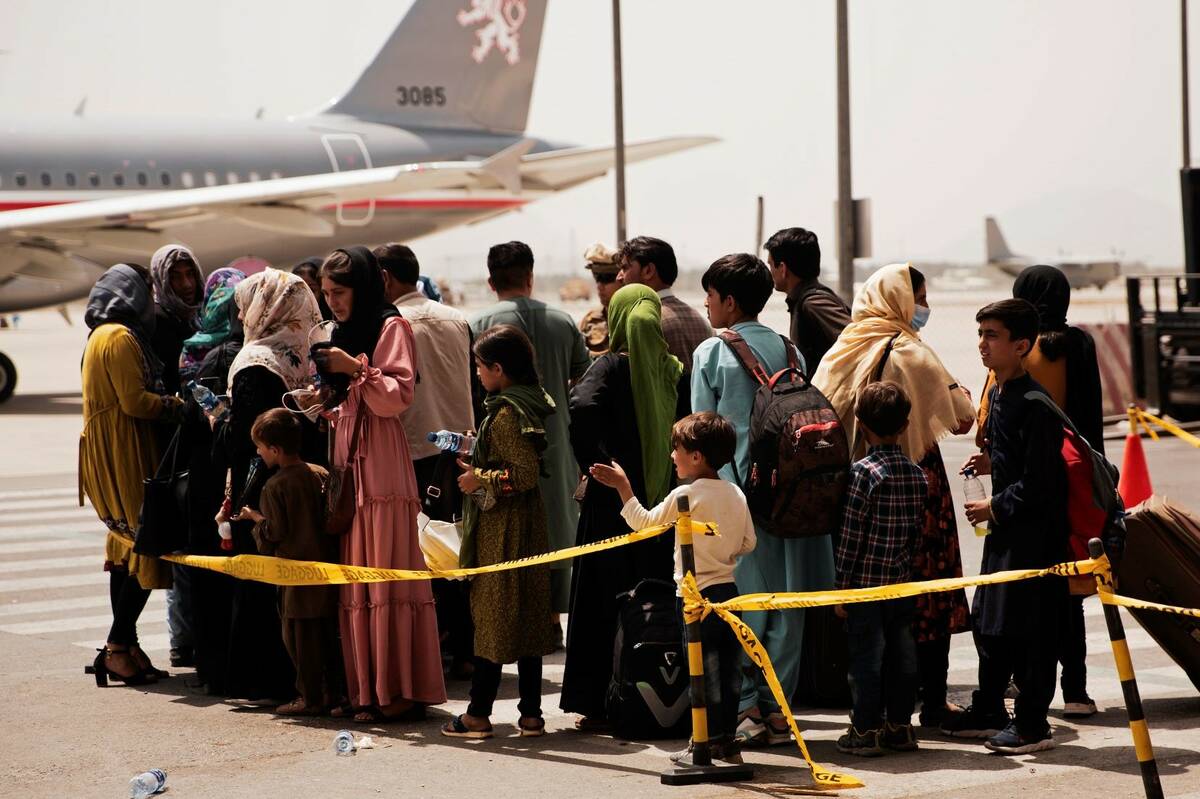RUBEN NAVARRETTE JR.: The United States needs to be colorblind toward refugees
This is clearly the Century of the Refugee, and we’re not even a quarter of the way through.
Look around the globe. One group of people after another is adrift after being displaced from their homeland by famine, war, chaos, persecution, political upheaval or threats of violence.
The tales of suffering from people on the move are eerily similar. Yet different groups of refugees are almost always treated differently. Some are cared for and left with their dignity intact, while others are shunned and herded into pens like livestock. Some are graciously given what they need to survive, while others are told that all they want to do is take — then take some more.
This disparate treatment boils down to which group of refugees is more relatable. The more “foreign” refugees appear, the less likely they are to find someone to champion their cause.
In the United States, if you have light skin and come from a country that has a decent amount of wealth or natural resources, you’re likely to be treated well. Even if you’re penniless, the assumption is that you won’t be poor for long.
But if you have dark skin and come from an economically disadvantaged nation, you won’t be so lucky. The assumption is that you are seeking to freeload off hard-working Americans.
Just in the past decade, the refugees who made their way to America’s front door include Syrians, Hondurans, Guatemalans, Salvadorans, Haitians and a variety of others.
According to the United Nations, due to the Russian invasion on Feb. 24, more than 2.8 million Ukrainians have fled their country. Some traveled by airplane and taxi all the way to the U.S.-Mexico border in the hopes of entering the United States.
It is estimated that, before Ukraine’s nightmare ends, as many as 7 million of its people will have become refugees. At the rate we’re going (i.e., nearly 1 million refugees per week), the final tally could easily be twice that amount.
So with all these refugees crisscrossing the planet, has anyone learned anything about the topic? Here’s lesson No. 1: People who have been through hell need to be handled with care.
In the United States, this country that is so often the destination of refugees and yet has rarely welcomed refugees, Americans don’t seem to have learned that lesson.
On social media, a meme is worth a thousand words. There is a powerful image circulating on Facebook, a split screen of two boys forced to leave their home countries as refugees. The image on top is of a light-skinned boy from Ukraine, the image on the bottom is that of a brown-skinned boy from Central America. The first boy is identified as: “A Real Hero: 11 year-old Ukrainian boy travels more than 700 miles alone to Slovakian border.” The fate of the second boy is described as such: “Central American boy locked up in Detention Center for traveling 700 miles alone to (the) U.S. border.”
When I shared the meme onto my Facebook page, a Latino follower responded with the comment: “racist hypocrites.”
That’s in the ballpark. Just because something makes us uncomfortable doesn’t mean that it’s not true. In a refugee crisis, race helps dictate how asylum-0seekers are portrayed.
Here in the United States, in our never-ending national conversation about immigration and refugees, we treat Ukrainians one way but Haitians and Salvadorans another.
Some media critics have suggested that one reason that so many Western journalists have given the crisis in Ukraine so much airtime over the last three weeks is because — borrowing actual language from news clips — the victims hail from Europe, are “civilized,” have “blue eyes and blond hair” and “look like us.”
Lorraine Ali, television critic for the Los Angeles Times, nailed it. She pointed to CBS News reporter Charlie D’Agata, who said of Ukraine in one report: “This isn’t a place, with all due respect, like Iraq or Afghanistan, that has seen conflict raging for decades. This is a relatively civilized, relatively European — I have to choose those words carefully too — city, one where you wouldn’t expect that or hope that it’s going to happen.”
According to Ali, The Arab and Middle Eastern Journalists Association condemned “the racist implications that any population or country is ‘uncivilized’ or bears economic factors that make it worthy of conflict.”
Americans have to work at making our refugee policy more equitable. Faced with suffering, Americans tend to be good people. We just need to spread the “good” more evenly.
Ruben Navarrette’s email address is crimscribe@icloud.com. His podcast, “Ruben in the Center,” is available through every podcast app.





















